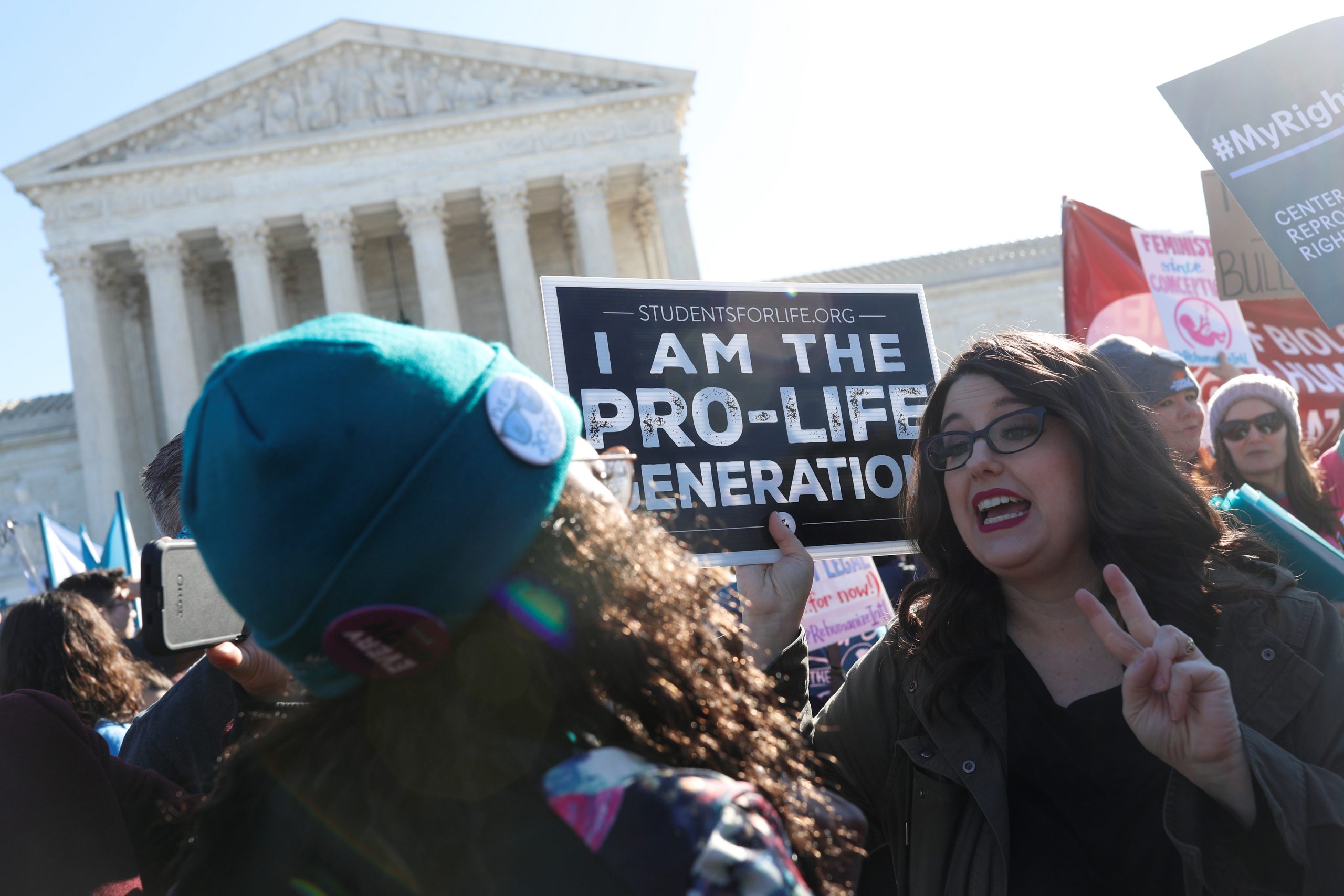Supporters of abortion rights voiced trepidation outside the U.S. Supreme Court on Wednesday as the justices weighed the fate of one of the numerous restrictive laws passed by conservative states that make access to the procedure more difficult.
Hundreds of demonstrators rallied on a cool and sunny day in the U.S. capital as the nine justices heard arguments in an Shreveport abortion clinic’s appeal of a lower court ruling upholding a restrictive Louisiana abortion law. Abortion rights supporters outnumbered opponents. Some carried signs saying “Protect Safe, Legal Abortion” and “My Right, My Decision.”
“I remember a time when abortion wasn’t legal. It was illegal when I was a teenager. And we aren’t going back. We’re just not going back,” said demonstrator Bambi Nelms, 62, of Maryland. “My mother had an illegal abortion before I was born – coat hanger variety – and it darned near killed her. She had me after that.”
Louisiana’s law, put on hold during the legal challenge, requires doctors who perform abortions to have a sometimes difficult-to-obtain arrangement called “admitting privileges” at a hospital within 30 miles (48 km) of the abortion clinic.
Steffani Bangel, 30, who works at a Louisiana organization that supports access to abortion clinics, noted that the Supreme Court in 2016 struck down a Texas abortion law that contained an admitting privileges mandate.
“It’s frustrating to be back here after four years. We were just here four years ago,” Bangel said.
“We believe the law is on our side,” Bangel added.
Activists who oppose abortion are hoping the Supreme Court, with a 5-4 conservative majority, will scale back or even overturn the landmark 1973 Roe v. Wade ruling that legalized abortion nationwide.
Some anti-abortion demonstrators held flags emblazoned with Bible quotes and the image of a bald eagle – a symbol of America – carrying a Christian cross. Others stood silently with red tape over their mouths with the word “LIFE” in black letters.
Demonstrator Dennis McKirahan, 75, of Ohio said supporters of abortion rights were “distorting what God intended.”
“When that baby is a seed in the womb, scientifically, it’s going to be a baby. And you can’t stop that or you’re killing that baby,” McKirahan said. “God didn’t intend us to stop our creation.”
Louisiana’s law is one of many passed in conservative states to restrict abortions. Some others bar abortions after a certain number of weeks of pregnancy, require ultrasound exams and state-mandated counseling for women, impose waiting periods and compel parental consent for minors seeking the procedure.
Lillian Kaminer, 69, of Virginia said she attended the rally because preserving access to abortion is her “number one political cause.”
“Women should have a choice about their health, their healthcare and their families,” Kaminer said.
(Reporting by Jan Wolfe; Editing by Will Dunham)

























 Continue with Google
Continue with Google